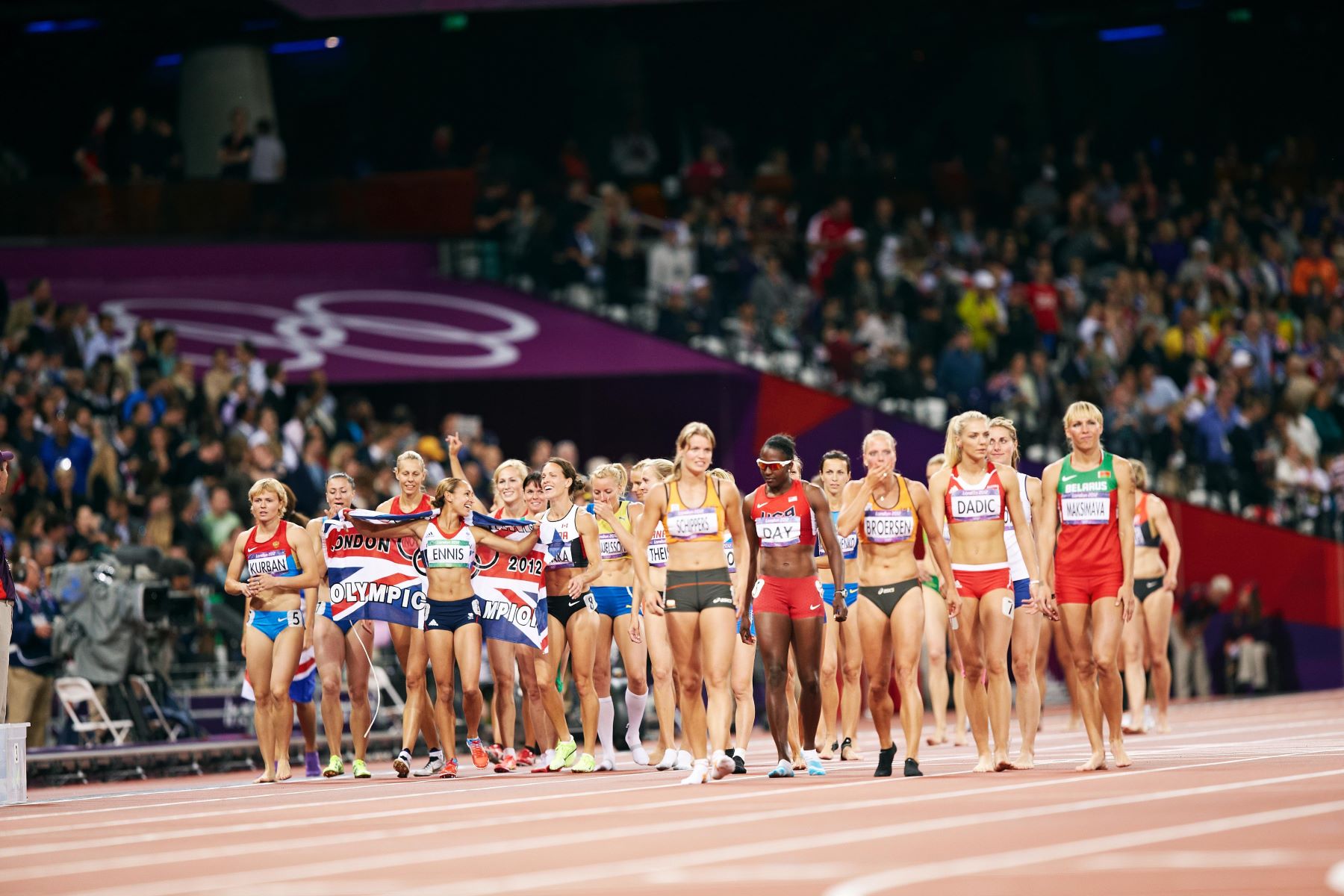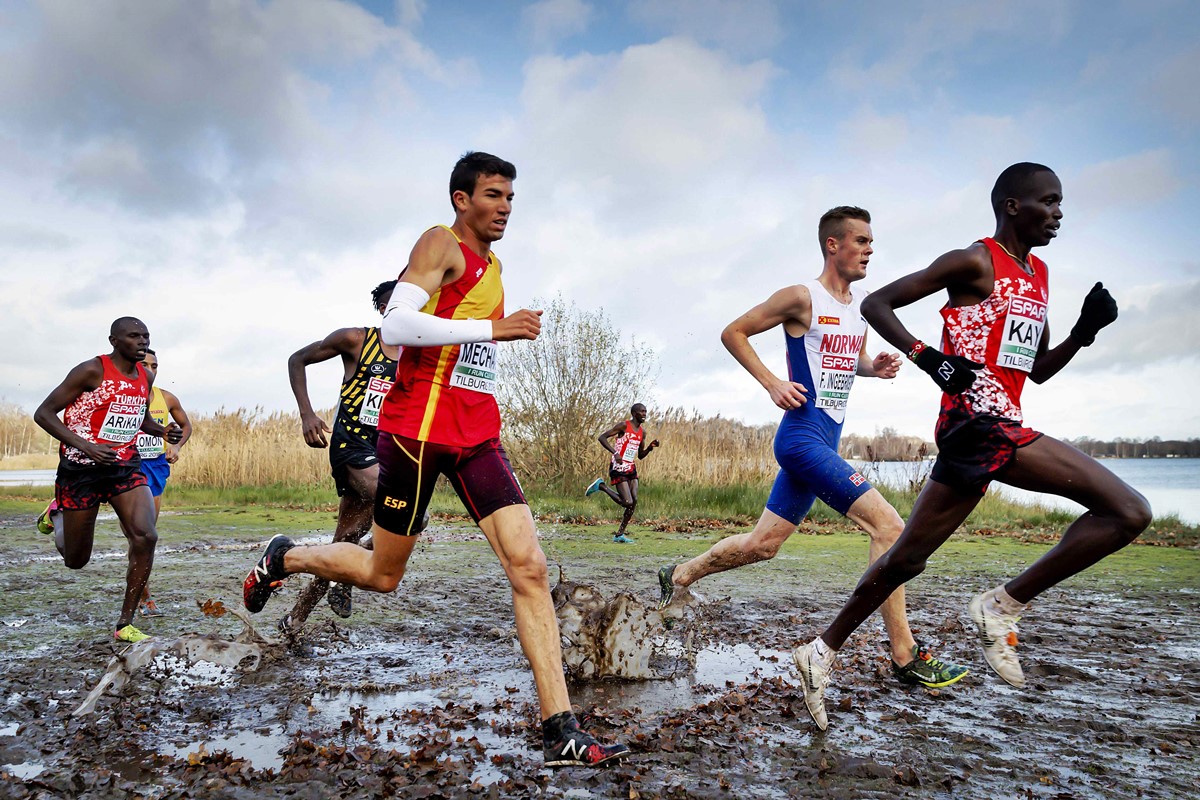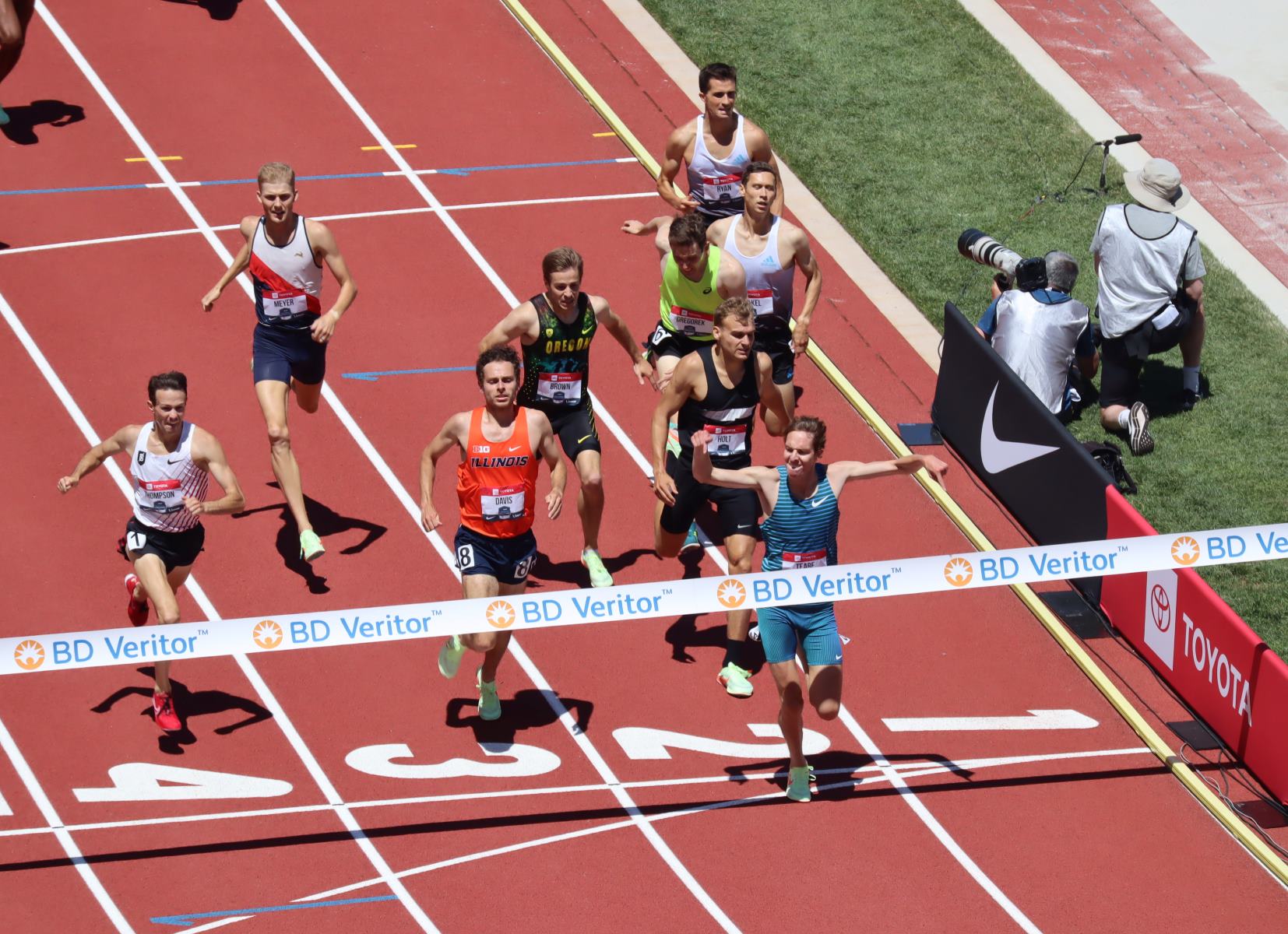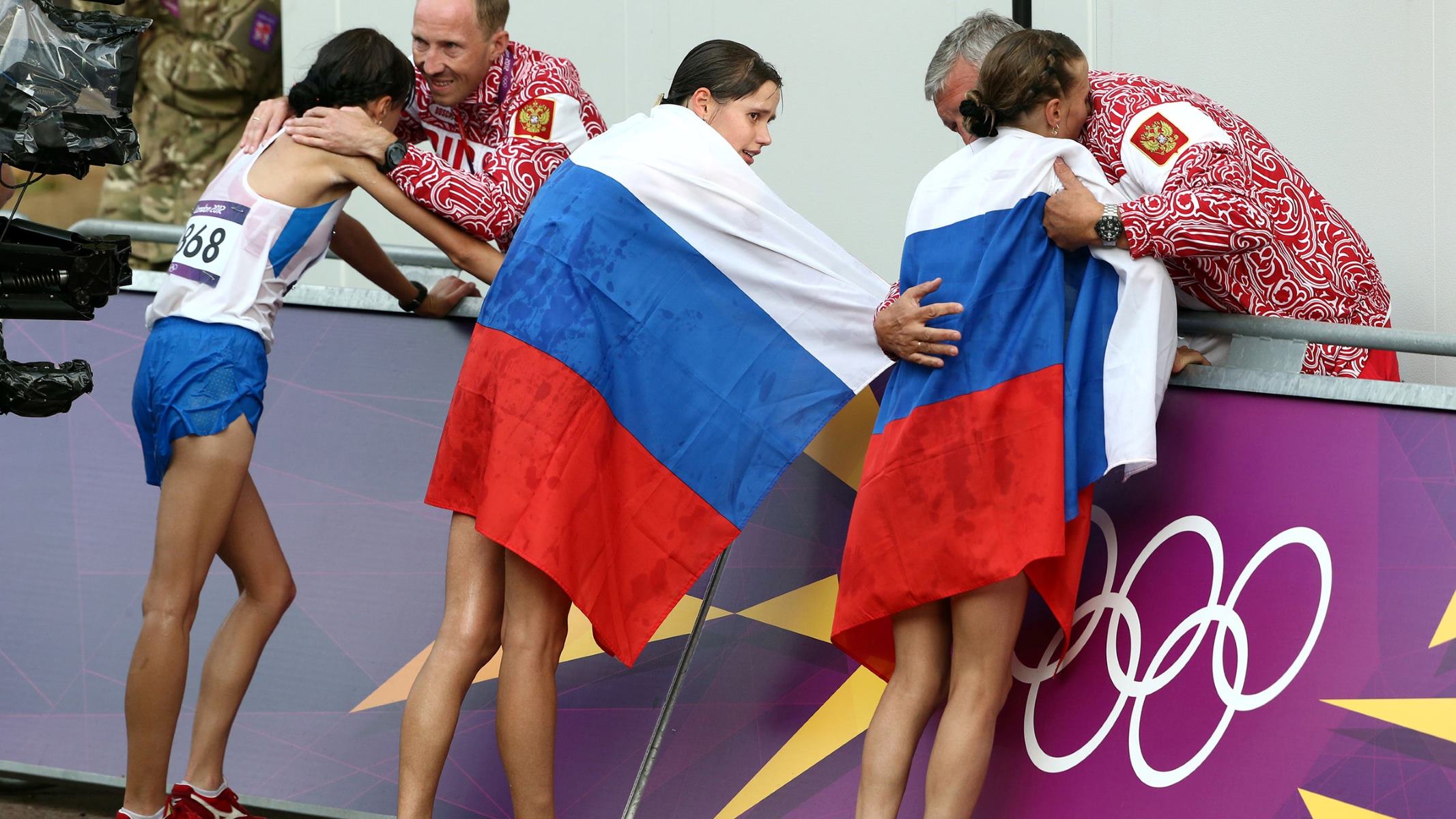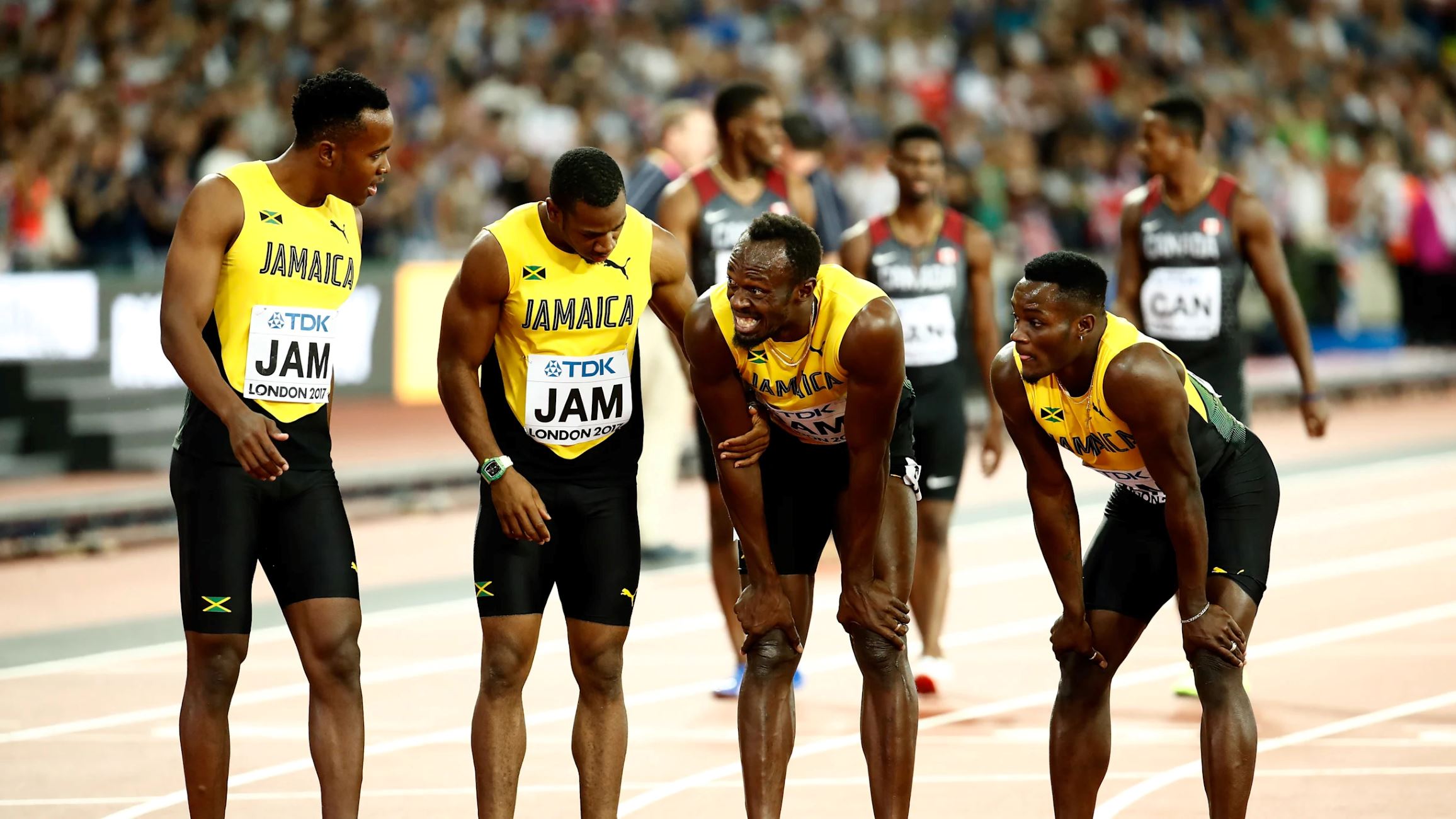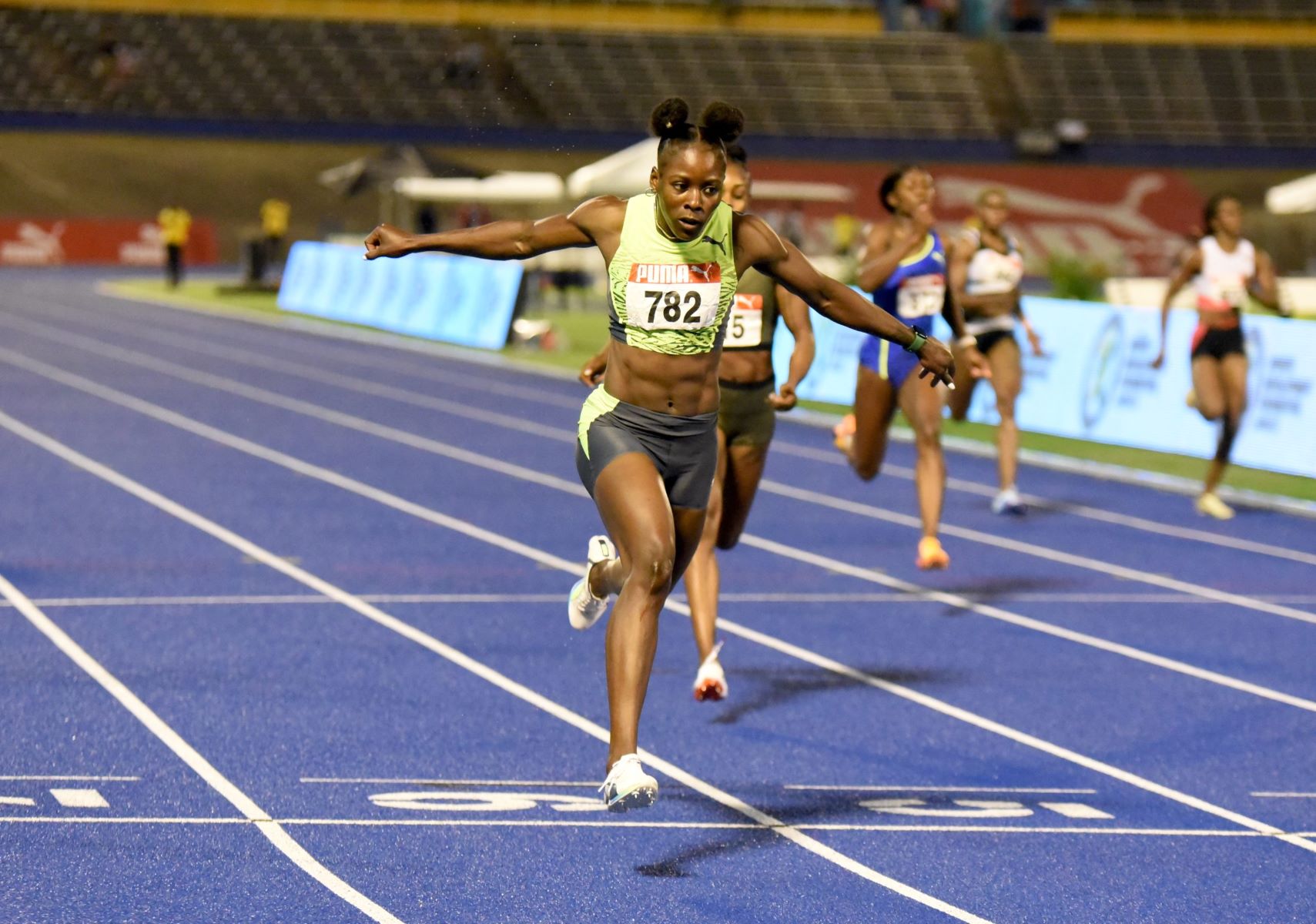Home>Misc>Featured>What Country Has The Most Olympic Medals In Track And Field
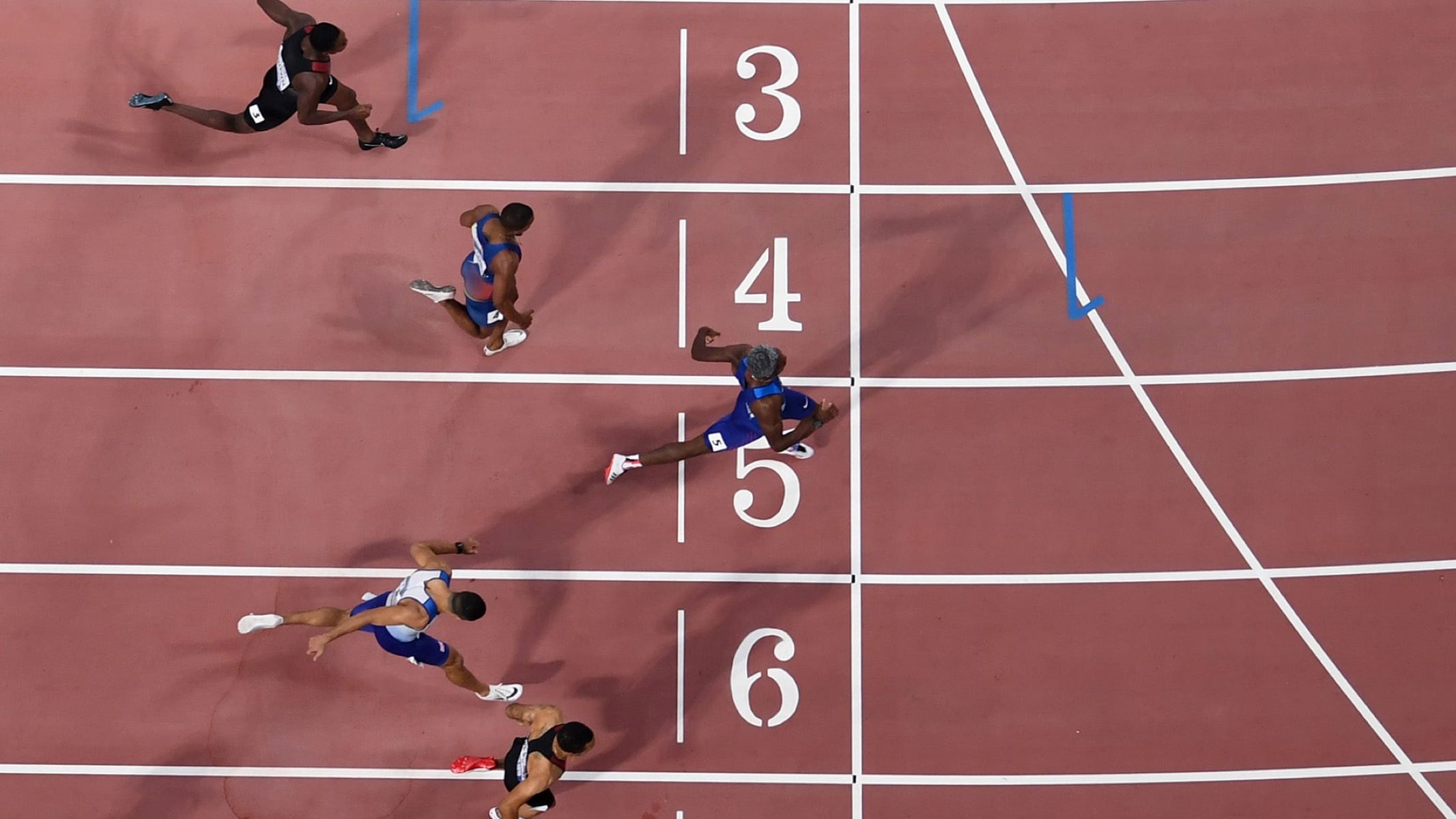

Featured
What Country Has The Most Olympic Medals In Track And Field
Modified: August 21, 2023
Discover the featured country with the most Olympic medals in track and field. Uncover the secrets behind their outstanding success in this thrilling sport.
Introduction
The Olympic Games have always been the pinnacle of athletic achievement, showcasing the best athletes from around the world. Among the various sports featured in the Olympics, track and field events hold a special place. With its rich history and intense competition, track and field has produced some of the most iconic moments in Olympic history.
Track and field events encompass a wide range of disciplines, including sprints, hurdles, middle and long-distance races, relays, jumping events, and throwing events. Over the years, athletes from different countries have showcased their immense talent and determination, vying for the ultimate prize – the Olympic medal.
This article will delve into the fascinating world of Olympic track and field and explore which country has emerged as the most successful in terms of medal tally. We will dive into the history of track and field in the Olympics, examine the factors that contribute to medal success, and analyze the dominant countries in track and field. Finally, we will reveal the country that has amassed the most Olympic medals in track and field events over the years.
Through this exploration, we hope to gain a deeper understanding of the achievements and legacies of the countries that have left an indelible mark on Olympic track and field, while celebrating the remarkable athletes who have dedicated their lives to this demanding and exhilarating sport.
History of Track and Field in the Olympics
The origins of track and field can be traced back to ancient civilizations, where athletic competitions were held as a way to honor gods and showcase physical prowess. The concept of organized track and field events gained prominence in ancient Greece, with the famous Olympic Games being the most significant.
The ancient Olympics, which began in 776 BC and took place every four years in Olympia, included various track and field events such as sprinting, long jump, discus throw, and wrestling. These events were seen as a testament to physical fitness, strength, and agility.
However, the modern era of track and field in the Olympics began in 1896 when the first modern Olympic Games were held in Athens, Greece. Track and field events played a central role in the inaugural Games, with athletes from nine countries participating in contests such as the 100-meter sprint, marathon, long jump, and shot put. The success and popularity of these events led to their inclusion in every subsequent Olympic Games.
Over the years, the Olympic track and field program evolved and expanded to include new events and disciplines. Women’s track and field was introduced in the 1928 Amsterdam Olympics, giving female athletes the opportunity to compete on the global stage. Today, the Olympic track and field program consists of a diverse range of events, showcasing the athletic prowess of both men and women from around the world.
The Olympics have witnessed numerous iconic moments in track and field history. Jesse Owens’ four gold medals at the 1936 Berlin Olympics, Usain Bolt’s record-breaking sprints in Beijing and London, and Bob Beamon’s legendary long jump in Mexico City are just a few examples of the extraordinary feats achieved by athletes in this sport.
With its deep-rooted history and a tradition of excellence, track and field continues to captivate audiences worldwide during every edition of the Olympic Games. Each Games serves as a platform for athletes to push the boundaries of human performance and leave a lasting legacy in the annals of track and field history.
Factors Affecting Medal Success in Track and Field
Medal success in track and field at the Olympic Games is the result of a combination of factors that contribute to an athlete’s performance. From individual capabilities to training methods and national resources, several key elements influence the likelihood of achieving medal success in this highly competitive sport.
1. Athletic Talent: The most fundamental factor is the natural athletic talent of the athletes. Speed, power, agility, and endurance are crucial attributes that provide a foundation for success in track and field events. Athletes born with exceptional physical traits have an advantage over others.
2. Training and Coaching: Effective training programs and experienced coaches play a vital role in an athlete’s progression and performance. High-performance training includes specialized workouts, strength and conditioning exercises, and refining techniques specific to each event category.
3. Access to Resources: Countries with greater resources and infrastructure have an edge in developing world-class athletes. Adequate facilities, funding, medical support, and sports science expertise all contribute to the development of athletes and their preparation for international competitions.
4. Competition and Exposure: Regular exposure to high-level competitions and competitive environments is crucial for athletes to hone their skills and gain experience. Countries with strong national competitions and international exposure provide their athletes with the opportunity to grow and excel.
5. Support System: A strong support system, including family support, sports federations, and sponsorships, plays a crucial role in an athlete’s journey. Emotional assistance, financial backing, and moral support help athletes to focus on their training and performance without unnecessary distractions.
6. Sports Science and Technology: Advances in sports science and technology have significantly impacted track and field performance. From analyzing biomechanics to utilizing data-driven training methods, athletes and coaches can optimize performance and improve training techniques.
7. Mental and Psychological Factors: Mental strength and psychological resilience are essential for success in any sport, including track and field. The ability to handle pressure, stay focused, and overcome setbacks is critical during high-stakes competitions like the Olympic Games.
It is important to note that while these factors play a significant role, individual drive, determination, and dedication also contribute to an athlete’s ability to achieve medal success. The combination of these factors, along with years of hard work and sacrifice, often sets the stage for remarkable performances and medal-winning achievements in the world of track and field.
The Dominant Countries in Track and Field
Throughout the history of the Olympic Games, certain countries have emerged as powerhouses in track and field, consistently producing exceptional athletes and achieving remarkable success on the global stage. These countries have made significant contributions to the sport and have become synonymous with excellence in track and field events.
1. United States: The United States has a long-standing tradition of dominance in track and field. With a rich pool of talented athletes and a robust sports infrastructure, the U.S. has consistently topped the medal tables in track and field events. American athletes have excelled in various disciplines, including sprints, hurdles, relays, and jumping events, producing legendary athletes like Carl Lewis, Florence Griffith Joyner, and Jesse Owens.
2. Jamaica: Jamaica has become a force to be reckoned with in the sprint events, particularly the men’s and women’s 100-meter and 200-meter races. Jamaican athletes, led by superstars Usain Bolt and Shelly-Ann Fraser-Pryce, have continuously showcased their speed, agility, and dominance in international competitions, earning numerous medals for their country.
3. Kenya: Kenya has established itself as a powerhouse in long-distance running events. Kenyan athletes have consistently dominated races such as the 800 meters, 1500 meters, and the marathon. Renowned athletes like Wilson Kiprugut, David Rudisha, and Eliud Kipchoge have brought honor to their country by winning multiple medals and setting world records.
4. Russia/Soviet Union: Historically, the Soviet Union and now Russia have been major contenders in track and field events. Russian athletes have excelled in a variety of disciplines, including throws, jumps, and combined events. Over the years, athletes from this region have consistently secured top positions on the medals podium.
5. Germany: Germany has a strong track and field legacy, particularly in throwing events. German athletes have been successful in disciplines like shot put, discus throw, and javelin throw. They have produced exceptional athletes such as Uwe Hohn, Heike Drechsler, and Thomas Röhler, who have achieved great success in Olympic competitions.
While these countries have demonstrated dominance in specific disciplines or events, it is important to acknowledge that many nations have made significant contributions to track and field. Countries like Great Britain, Ethiopia, Australia, and China have also produced exceptional athletes who have left lasting impacts on the sport.
The landscape of track and field continues to evolve, with new talents emerging and challenging the established order. The competition between these dominant countries and the emergence of new contenders make track and field a captivating and highly competitive sport in every edition of the Olympic Games.
Analyzing the Most Successful Countries in Olympic Track and Field
When examining the most successful countries in Olympic track and field, it is essential to consider various factors, including the overall medal count, the consistency of success over multiple Games, and the breadth of events in which a country has excelled. While each country’s success can be attributed to unique circumstances, analyzing their performances provides valuable insights into the patterns and trends of track and field domination.
The United States has undeniably been the most successful country in Olympic track and field. Since the modern Games began in 1896, the U.S. has accumulated an impressive number of medals across various events. Their success can be attributed to a strong track and field culture, a deep talent pool, and a relentless pursuit of athletic excellence. With exceptional sprinters, dominant hurdlers, and top-notch jumpers, the United States has consistently dominated the Olympic track and field stage.
Jamaica has emerged as a force to be reckoned with in recent years, particularly in sprint events. The emergence of world-record holder Usain Bolt and other exceptional Jamaican sprinters has propelled their nation to the top of the medals tally in the men’s and women’s 100-meter and 200-meter races. Jamaica’s success can be attributed to a combination of natural talent, a focus on the development of sprinters, and a supportive training infrastructure.
Kenya’s consistent success in long-distance running events is remarkable. Their athletes’ dominance in events like the 800 meters, 1500 meters, and marathon can be attributed to a combination of factors, including a culture of running, high-altitude training, and a disciplined approach to endurance training. Kenya’s physical geography and a tradition of distance running have played a crucial role in their athletes’ achievements.
Russia, formerly as part of the Soviet Union, has been a dominant force in Olympic track and field, especially in events such as throws, jumps, and combined events. Their success can be attributed to extensive sports infrastructure, scientific training methods, and an emphasis on developing versatile athletes. However, it’s important to note that recent doping scandals have cast a shadow on some of Russia’s achievements in the sport.
Germany’s success in track and field has predominantly come from their prowess in throwing events. Exceptional shot putters, discus throwers, and javelin throwers have consistently brought home medals for Germany. Their success can be attributed to specialized training programs, cutting-edge sports science, and a tradition of excellence in technical events.
While these countries have enjoyed significant success in specific events, it is important to acknowledge that track and field is a diverse and competitive sport. Many countries have risen to the occasion and achieved remarkable success in different events throughout the history of the Olympic Games.
An analysis of the most successful countries in Olympic track and field reveals a combination of factors that contribute to their dominance. These include a strong sporting culture, investments in training and infrastructure, access to resources, and a focus on developing athletes in specific disciplines. It is these elements that have allowed certain countries to consistently excel and leave a lasting legacy in Olympic track and field history.
The Country with the Most Olympic Medals in Track and Field
When it comes to the country with the most Olympic medals in track and field, there is one nation that stands out above the rest – the United States. With a rich tradition and a long-standing dominance in the sport, the U.S. has consistently produced exceptional athletes who have contributed to their impressive medal count.
Since the inception of the modern Olympic Games in 1896, the United States has accumulated an astounding number of medals in track and field events, totaling well over 800. This achievement is a testament to the country’s dedication to the sport and its ability to foster world-class athletes across a wide range of disciplines.
The U.S. has been particularly dominant in sprinting events, with incredible athletes like Carl Lewis and Usain Bolt capturing the world’s attention and breaking records along the way. American athletes have also excelled in hurdles, relays, jumping events, and throwing disciplines, consistently contributing to the country’s medal count and solidifying its position as a track and field powerhouse.
One of the key factors behind the United States’ success in track and field is its robust sports infrastructure. The country boasts state-of-the-art training facilities, well-established coaching programs, and a strong support system for athletes. These resources allow U.S. athletes to develop their skills to the fullest extent and compete at the highest level.
In addition to the unparalleled talent pool and infrastructure, the U.S. also benefits from a deeply ingrained track and field culture. The sport has a long history and a dedicated following, which has led to the continuous production of exceptional athletes. The popularity of track and field in schools, colleges, and grassroots programs provides a nurturing environment for young talent to flourish and aspire to become Olympic champions.
While the United States leads in the overall medal count, it is important to note that other countries have also made notable contributions to the sport. Countries like Jamaica, Kenya, Russia, and Germany, as mentioned earlier, have produced outstanding athletes and achieved significant success in specific events and disciplines.
Track and field’s global appeal has seen athletes from various countries make their mark on the sport. The Olympic Games serve as a stage for athletes to showcase their talents, push their limits, and inspire future generations.
As the most successful country in terms of Olympic medals in track and field, the United States continues to establish its dominance in the sport. With a legacy of unrivaled achievements and a tradition of fostering exceptional talent, the U.S. exemplifies the pinnacle of excellence in Olympic track and field.
Conclusion
The world of Olympic track and field is filled with remarkable achievements, inspiring stories, and fierce competition. Throughout history, various countries have made their mark in this exhilarating sport, showcasing their prowess on the global stage and leaving a lasting legacy. Factors such as talent, training, resources, and a supportive ecosystem all contribute to a country’s success in track and field at the Olympic Games.
The United States has emerged as the most successful country in terms of Olympic medals in track and field. With a rich tradition, a deep talent pool, and a robust sports infrastructure, the U.S. has consistently produced exceptional athletes and dominated various events. From sprinting to jumping to throwing disciplines, American athletes have excelled and contributed significantly to the country’s impressive medal count.
However, it is important to recognize the achievements of other nations as well. Jamaica’s dominance in sprint events, Kenya’s excellence in long-distance running, Russia’s strength in throws, and Germany’s success in technical events all demonstrate the diversity and global nature of track and field excellence. Each country brings its own unique set of strengths and strategies to the competition, making the sport even more captivating and exhilarating to watch.
As each edition of the Olympic Games approaches, anticipation builds as athletes from around the world prepare to showcase their skills and compete for glory in track and field events. The Olympic Games serve as a platform to celebrate the achievements of athletes, promote unity among nations, and inspire people of all ages and backgrounds to pursue their dreams.
While the United States may hold the record for the most Olympic medals in track and field, the nature of sports means that dominance can shift, new talents can emerge, and future games can bring surprises. The world of track and field continues to evolve, creating an endless source of fascination and excitement.
As we look forward to future Olympic Games, we can anticipate witnessing more spectacular performances, inspiring stories of triumph and determination, and the emergence of new countries as contenders in the world of track and field. The beauty of the sport lies in its ability to captivate audiences, unite nations, and push the boundaries of human performance, exemplifying the true spirit of the Olympic Games.

